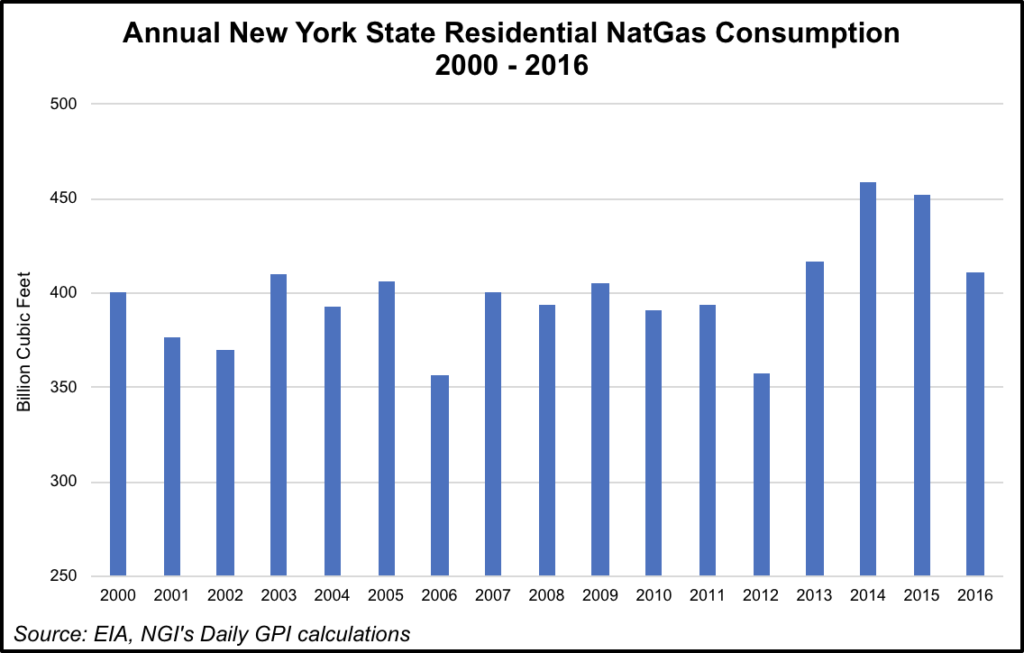NGI All News Access | Infrastructure
Con Edison Seeking Ways to Meet NatGas Demand Minus Another Pipeline
Con Edison (Con Ed) is accepting proposals to help it meet increasing natural gas demand in the New York City region without having to build a major pipeline.

The utility, which serves 1.1 million gas customers in Manhattan, the Bronx, Westchester and parts of Queens, issued a request for proposals (RFP) earlier this month as it considers ways to better meet its service area’s needs and the state’s environmental goals.
Con Ed said it could invest at least $100 million annually in an effort to avoid a large infrastructure project, as it grapples with Gov. Andrew Cuomo and Mayor Bill de Blasio’s energy policies.
“We have seen significant growth in customers choosing natural gas to heat their homes, and thousands of oil-to-gas conversions in recent years have helped to clean the air for all New Yorkers,” said Senior Vice President Matthew Ketschke of customer energy solutions. “We also acknowledge everyone’s desire to limit the use of fossil fuels as much as possible and continue our region’s environmental progress.”
Peak gas demand in Con Ed’s service areas has grown 30% since 2011, and demand is forecast to grow another 20% over the next two decades. However, customer desire for more gas comes as the state and New York City grapple with reducing emissions and their reliance on all fossil fuels.
Under Cuomo’s energy policies, the state is targeting a 40% reduction in greenhouse gas (GHG) emissions by 2030 and 80% by 2050, from 1990 levels. The administration also is expecting the state to produce 50% of its electricity with renewable energy sources by 2030. New York City meanwhile, aims to reduce GHG emissions by 75% by 2050 in addition to other energy-related initiatives that would benefit the environment.
State regulators have also rejected several pipeline projects that would serve the region and, Cuomo’s administration banned high-volume hydraulic fracturing about two years ago. Those moves have been staunchly supported by environmental groups.
Con Ed said pipeline alternatives could include demand reduction measures such as energy efficiency initiatives, while local gas supply enhancements, like biogas technology or natural gas storage, could help it reduce the need for long-haul transportation.
The RFP and more information is available on the company website, with proposals due by March 1. The company is evaluating proposals based on a variety of factors, including a project’s cost, its ability “to forestall the need for new pipelines,” and its potential GHG impacts.
© 2024 Natural Gas Intelligence. All rights reserved.
ISSN © 1532-1231 | ISSN © 2577-9877 |
